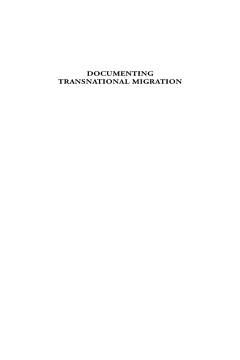
Additional Information
Book Details
Abstract
Most studies on transnational migration either stress assimilation, circulatory migration, or the negative impact of migration. This remarkable study, which covers migrants from one Jordanian village to 17 different countries in Europe, Asia, and North America, emphasizes the resiliency of transnational migrants after long periods of absence, social encapsulation, and stress, and their ability to construct social networks and reinterpret traditions in such a way as to mix the old and the new in a scenario that incorporates both worlds. Focusing on the humanistic aspects of the migration experience, this book examines questions such as birth control, women’s work, retention of tribal law, and the changing attitudes of migrants towards themselves, their families, their home communities, and their nation. It ends with placing transnational migration from Jordan in a cross-cultural perspective by comparing it with similar processes elsewhere, and critically reviews a number of theoretical perspectives that have been used to explain migration.
“This book provides very rich material on long-term experiences of Arab migrants abroad and contributes to the literature on migration and Arab disasporas.” · JRAI
Richard T. Antoun† was Professor Emeritus of Anthropology at the State University of New York at Binghamton. A Fulbright scholar and past president of the Middle East Studies Association, he had taught at Indiana University, Manchester University, England, and as visiting professor at the American University of Beirut, Cairo University, and the University of Chicago. On the basis of extensive field research in Jordan and Iran, Antoun wrote three books: Arab Village: A Social Structural Study of a Transjordanian Peasant Community, Low-Key Politics: Local-Level Leadership and Change in the Middle East, and Muslim Preacher in the Modern World. His latest book, Understanding Fundamentalism: Christian, Islamic and Jewish Movements, was reprinted in a second edition and featured a new chapter on the transnational aspects of fundamentalism since 9/11 including the connections/misconnections between religion and violence and featuring a segment on Afghanistan and Osama bin Laden.
